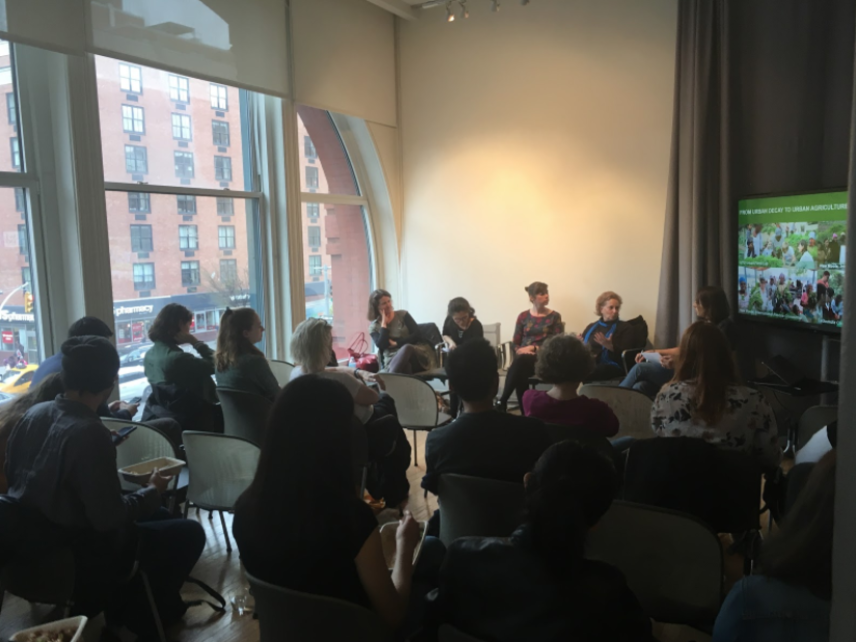Event Summary: From Urban Decay to Urban Agriculture
By Ariel Bernstein (NYU Steinhardt, Food Studies) and Mikeala Sparks (MUP, International Development)
The Wagner Food Policy Alliance (WFPA) recently hosted “From Urban Decay to Urban Agriculture,” an event co-sponsored by the Urban Planning Student Association.
The event featured a panel discussion about the current state, opportunities, barriers, and future vision of urban agriculture, both from a domestic and international scope. The panelists ranged from a local community garden and urban farm leaders to national and international coordinators involved in urban farm programs.
Throughout the discussion, a key talking point for all panelists included the opportunities urban agriculture provides outside of simply growing fresh and healthy food for nearby residents. Specifically, the panelists spoke to educational programs, youth development, relevant labor, workforce training, and women-centric programming. Additionally, each of the panelists stressed the powerful values that these types of programs and spaces promote, such as integration, self-efficacy, healthier cities, and most importantly, strong community building. There are, however, a fair amount of barriers to entry and difficulties in carrying out these projects. Acquiring land is an ongoing issue, as is ensuring safe water and soil, especially given the many contaminants that exist in cities.
The panelists also pointed to a lack of funding, data, and local policy infrastructure that can limit the development and growth of urban agriculture projects, both in New York City and developing cities across the world. Each agreed that with more buy-in from city government through policy and funding, urban agriculture could have greater potential to grow and flourish, further expanding the reach of impactful food and farming work.
WFPA offers a space for not only students from NYU Wagner, but also for student leaders from NYU Steinhardt’s Food Studies Department to come together and talk about food policy, access, and implementation efforts.
Whether volunteering in the community or hosting large-scale events on campus, the WFPA is working toward providing helpful resources and opportunities to drive change and create a vibrant and diverse community that makes food fairer and more accessible for all students and New Yorkers.
Panelists
- Ariel Bernstein, MA Food Studies Candidate; NYU Steinhardt School of Culture, Education, and Human Development
- Barbara Cahn, Vice Chair LaGuardia Corner Gardens
- Isabela Cunha, Sustainable Development Specialist, Food and Agriculture Organization of the United Nations
- Melissa Metrick, Department of Nutrition and Food Studies; NYU Steinhardt School of Culture, Education, and Human Development
- Aly Kent, Technical Advisor for Food Security and Agriculture, International Rescue Committee
